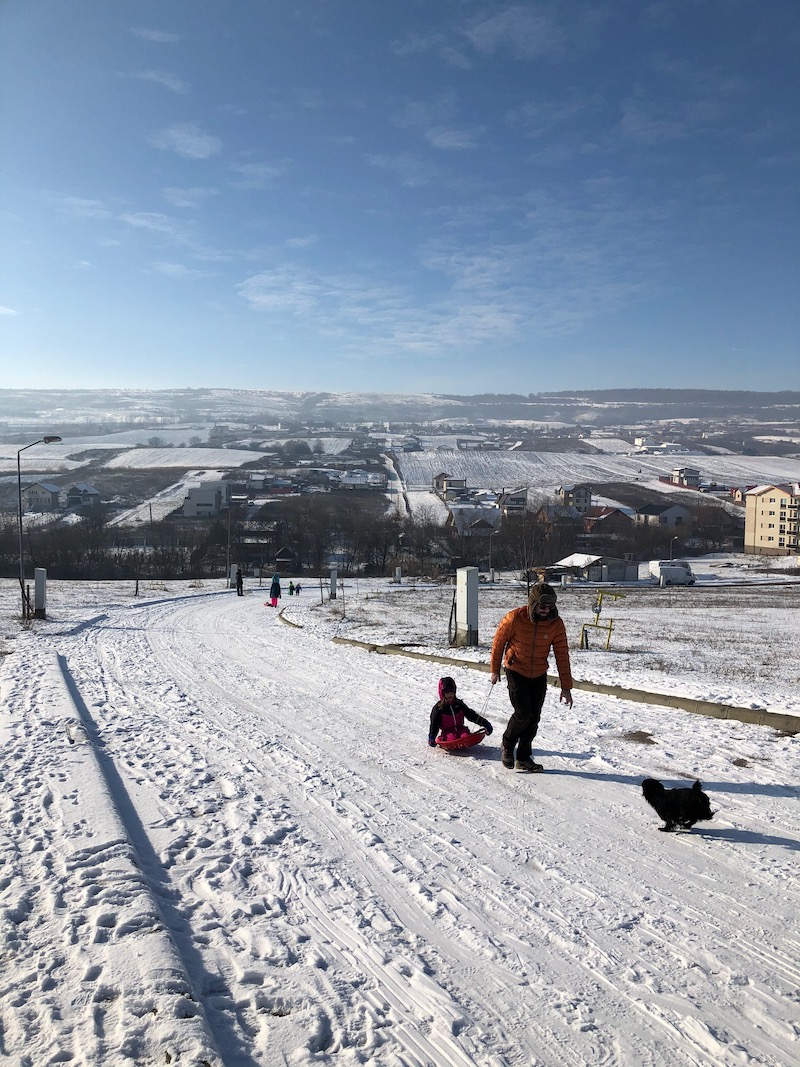I went to check in on Jackie and cover her, as she tosses and turns. She had been sleeping for over two hours. Conrad and I always enjoy each other’s company after her bedtime, and shamelessly protect our evenings together without her verbose company.
As I tuck her in, she sits up in bed and whispers clearly: “my parents are very good and I love them very much.” Then she put her head on the pillow and proceeded to snore (she’s been stuffed up these past couple of days).
I told her what she said the next day. She made a funny face and said: “I don’t remember. You must have imagined it.”
These vacation days are delightful: we sleep in, and in the evenings we take our time playing games, snuggling, reading the long and coveted bedtime books which we avoid on school nights.
Jackie feels the need to express her love for us more vocally and often. She hugs us tightly and says: “I love you so much, it takes my breath away!”
I wonder what goes through her mind.
The other day, as Conrad and I were working side by side on various projects, and we would discuss often our plans for 2020 regarding a few social projects, including “dor de acasa”, a community built around adoption, she said with a pouty attitude: “I’m sick of “dor de acasa”! What does that even mean?”
So I told her.
With another couple who is in the process of adopting a 2 year old, we want to build an association of resources and support for adoption, to complement the state services, and to basically help many other kids find their forever families, by facilitating many conversations around adoption. Because there are thousands of kids out there who don’t have a permanent home nor a mommy or a daddy.
Her attitude changed. From frowning to inquisitive and holding back a goofy smile. She said: “I was like that!” I was curious what she means so I asked a few open ended questions, like what does she remember…
She recollected that her biological mom couldn’t take care of her. She was living on the streets. So she brought her to a children’s home. There were many babies and toddles there, all in cribs. A man and a woman were giving them milk in bottles and put them to sleep too. Sometimes the caregivers gave the kids toys, when they stretched their arms from their cribs. But all the kids were crying for their mommies.
Eventually the foster family took her home and taught her how to walk when she was one and a half. And, after that, we adopted her. And she loves us a lot, a lot.
As she recounted all this, she agreed that our project and plans and time working on “dor de acasa” is ok.
When your six year old tells you such a story, with all seriousness and strangely accurate details… it makes you wonder. And it affirms that our work is not in vain.
The following day she asked me why do I give her book to people to read. She doesn’t like that. I asked her why. She responded that her life is not anybody’s business. And when people know her story they watch her with different eyes and judge her if she makes mistakes. And she’s a kid and she’s meant to make mistakes sometimes. That’s how she learns.
Wow!
I knew she might say something about my writing from the heart about our story, her story, but I didn’t expect if would happen so soon.
We reinforced our delight in her, and that she has the right to privacy as well. We also said that her story, written discreetly in my book is a reminder of the reality and emotions of adoption as well as of the things that matter. She seemed pleased with our conversation. For now. Because I know it’s not the last of it.

